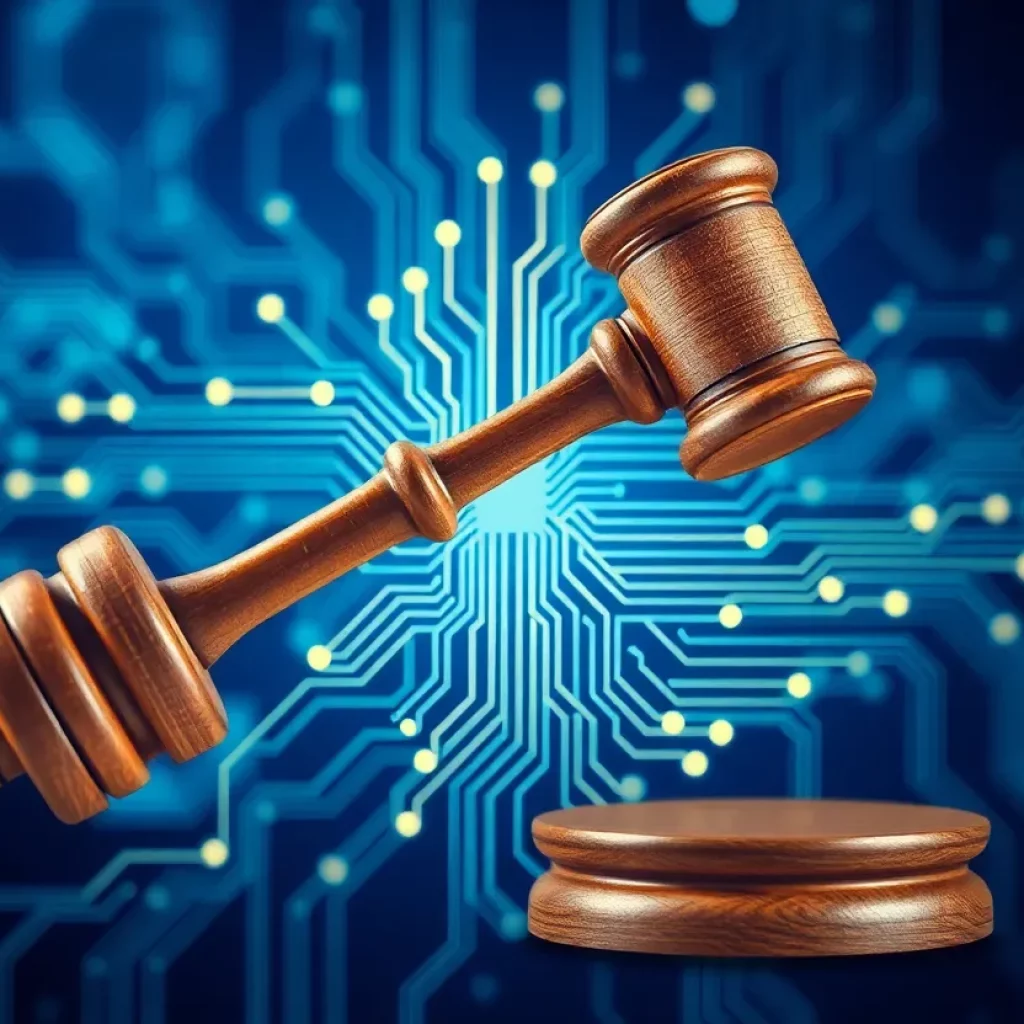News Summary
Butler Snow LLP faces significant backlash over the unauthorized use of artificial intelligence in legal filings, leading to fabricated legal citations. This discovery has sparked an internal investigation and raised broader concerns within the legal community regarding AI’s role in law. The ongoing case, linked to inmate Frankie Johnson, has illuminated systemic issues in Alabama’s prison system and the need for ensuring ethical legal practices as courts heighten their oversight of AI technologies in legal contexts.
Legal Drama Unfolds in Alabama: Butler Snow LLP Under Fire for AI Misconduct
On the grounds of the Hugo L. Black Courthouse in Birmingham, Alabama, a legal storm is brewing as Butler Snow LLP, a Mississippi-based law firm, finds itself in hot water over its use of artificial intelligence in legal filings. The firm, currently embroiled in a case in the Northern District of Alabama, is facing scrutiny following revelations about fabricated citations generated by an attorney using AI technology.
AI in the Legal Arena: Disturbing Discoveries
Matthew Reeves, one of the firm’s attorneys, has admitted to generating fictitious legal citations with the help of AI tools. This alarming admission prompted an internal investigation at Butler Snow, which reviewed over 50 dockets from both Alabama federal courts and the U.S. 11th Circuit Court of Appeals. Out of these, 40 dockets were found to contain “substantive citations for review.” Fortunately for Butler Snow, the investigation found no instances of “hallucinations” within the broader context of their legal filings.
The findings illuminate how generative AI has infiltrated legal practices, with Butler Snow claiming that the incidents involving AI-generated citations were isolated. However, the risks associated with using AI have raised eyebrows across the entire legal profession, prompting increased scrutiny and disciplinary actions nationwide, including 106 reported cases where attorneys faced consequences for similar AI-generated inaccuracies.
The Case of Frankie Johnson: A Spotlight on Systemic Issues
The legal proceedings in question involve inmate Frankie Johnson, who alleges that the Alabama Department of Corrections (ADOC) failed to protect him from violence while incarcerated. Johnson’s civil lawsuit stems from a series of violent assaults he claims he suffered, first in December 2019, and again in March 2020, at the William E. Donaldson Correctional Facility. The alleged lack of intervention from corrections staff raises questions not only about the safety protocols within the prison but also about the systemic issues of dedicated resources and staffing.
Johnson’s case has taken center stage as it underscores the broader critique of Alabama’s prison system, which has been highlighted by the U.S. Department of Justice for issues ranging from corruption to understaffing.
Reactions and Regulatory Responses
During the ongoing proceedings, the attorneys representing Johnson flagged the use of fabricated citations, some of which were flagged as “hallucinations,” with at least two referencing non-existent legal precedents. U.S. District Court Judge Anna M. Manasco has granted Butler Snow time to complete its internal investigation before imposing any potential sanctions. As of late Monday afternoon, no sanctions had been issued against the firm, though the clock is ticking with Butler Snow given ten days to address AI’s role in its legal practices.
In light of this situation, Butler Snow has begun implementing revised policies and procedures governing the use of AI in legal work. Furthermore, Reeves, along with Professor Anil Mujumdar, is seeking to educate the next generation of law students on the perils inherent in deploying AI technologies within the legal realm.
Monitoring the Legal Landscape
As Butler Snow continues its efforts to distance itself from the controversy, the firm has issued a public apology and expressed willingness to comply with any sanctions deemed necessary. A third-party review by the firm Morgan, Lewis & Bockius LLP has confirmed that apart from Reeves, there were no other instances of AI usage in their filings. However, scrutiny remains high, with courts nationwide increasingly concerned about ethical practices in modern law.
The implications of this case extend beyond Butler Snow, serving as a cautionary tale for legal professionals on the importance of diligent research practices and verifying the credibility of resources, particularly in an era driven by technological advancements. As the case progresses, all eyes will be on Judge Manasco’s decisions and the future of AI usage in legal contexts.
Deeper Dive: News & Info About This Topic
HERE Resources
Landmark Ruling: Lawyer Can Sue Cities for Pothole Injuries
Karen Read Acquitted: Lawyer’s Defense Challenges Prosecution
Controversy Surrounds Trump’s Judicial Nominee Amid Allegations
Karen Read Acquitted of Murder, Convicted of DUI: A Lawyer’s Perspective
Chaos in Florida’s Immigration Enforcement: Lawyer Found in Contempt
R. Kelly’s Lawyer Claims Bureau of Prisons is a Threat
Florida Lawyer in Contempt Over Immigration Law Dispute
Lawyer Files Emergency Motion Amid R. Kelly’s Legal Crisis
Lawyer Alleges Overdose Scandal Involving R. Kelly
Baron & Budd Lawyers Recognized in Lawdragon 500 List
Additional Resources
Author: STAFF HERE CHARLESTON
The CHARLESTON STAFF WRITER represents the experienced team at HEREcharleston.com, your go-to source for actionable local news and information in Charleston, Charleston County, and beyond. Specializing in "news you can use," we cover essential topics like product reviews for personal and business needs, local business directories, politics, real estate trends, neighborhood insights, and state news affecting the area—with deep expertise drawn from years of dedicated reporting and strong community input, including local press releases and business updates. We deliver top reporting on high-value events such as the Spoleto Festival USA, Charleston Wine + Food Festival, and the MOJA Festival. Our coverage extends to key organizations like the Charleston Metro Chamber of Commerce and the Charleston Museum, plus leading businesses in tourism and maritime industries that power the local economy such as South Carolina Ports Authority and the Charleston Visitor Center. As part of the broader HERE network, including HEREaiken.com, HEREbeaufort.com, HEREchapin.com, HEREcharleston.com, HEREclinton.com, HEREcolumbia.com, HEREgeorgetown.com, HEREgreenwood.com, HEREgreenville.com, HEREhiltonhead.com, HEREirmo.com, HEREmyrtlebeach.com, HEREnewberry.com, HERErockhill.com, HEREspartanburg.com, HEREaustin.com, HEREcollegestation.com, HEREdallas.com, HEREhouston.com, and HEREsanantonio.com, we provide comprehensive, credible insights into South Carolina's dynamic landscape.










